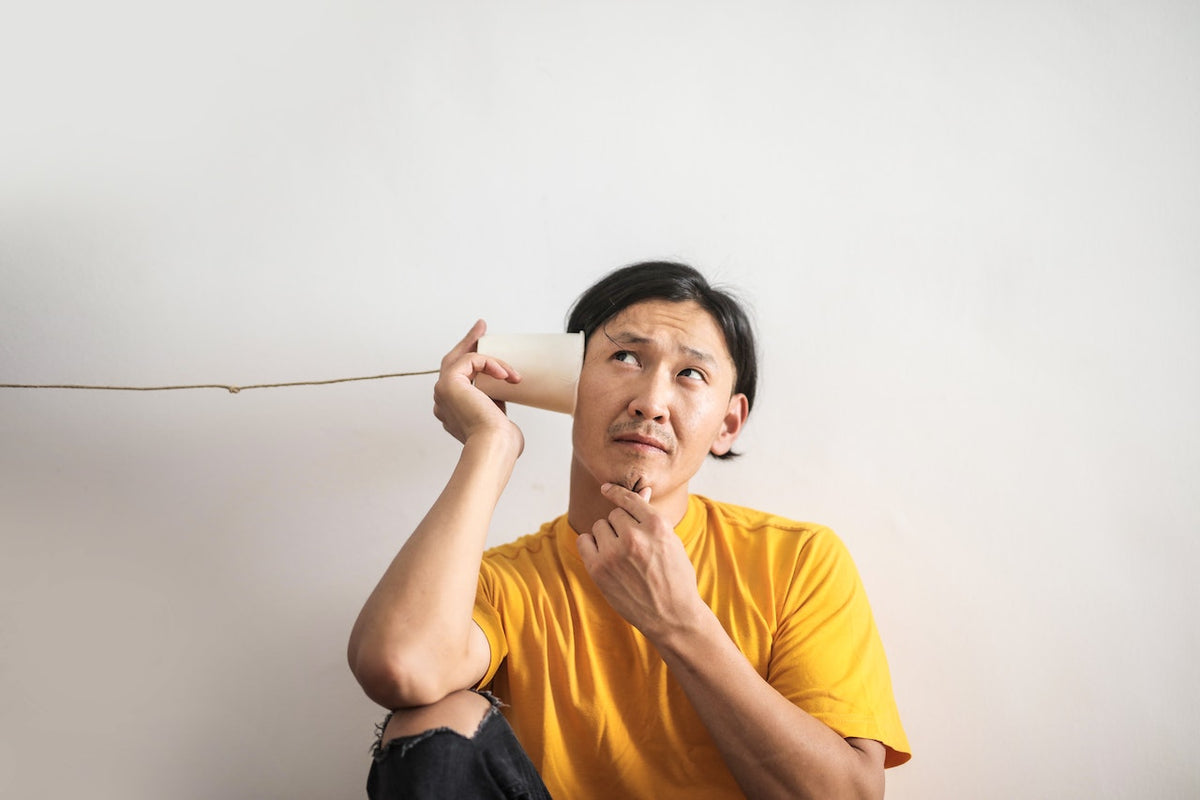
Hearing not as good as it used to be? You may be experiencing a condition known as auditory neuropathy.
Auditory neuropathy is a disturbance in the transmission of sound from the inner ear to the brain, resulting in an inability to hear speech or understand language.
The symptoms of auditory neuropathy can range from mild to severe, but if you're experiencing any kind of difficulty with your hearing, it's important to seek help from a healthcare professional.
In this article, we'll look at some of the symptoms associated with auditory neuropathy, as well as treatments and management strategies.
Auditory neuropathy is an increasingly common hearing disorder caused by a variety of factors.
In some cases, the cause of auditory neuropathy may be damage to the inner hair cells. These specialized sensory cells are responsible for transmitting sound information from the inner ear to the brain.
Damage to these special cells can interrupt or impair sound transmission, leading to decreased ability to fully hear and understand what is being heard. This type of occurrence can often happen through aging or exposure to loud noises.
In addition, if the auditory nerve connecting the inner ear and brain is damaged or has faulty connections, auditory neuropathy can be the result. Damage or faults in this critical pathway may be inherited through mutated genes or acquired through a traumatic event like sudden hearing loss.
Finally, combinations of any two (or more) of these cases may also contribute towards auditory neuropathy development, making it difficult for even experienced medical professionals to come up with reliable diagnoses and treatment plans without comprehensive testing.
People with auditory neuropathy generally have normal hearing or symptoms of hearing loss ranging from mild to severe. They will, however, have a poor ability to understand speech clearly.
Their impairment in speech perception is greater than their degree of hearing loss as measured on a hearing test. What this means is that people with auditory neuropathy may have no difficulty hearing sounds but have difficulty understanding spoken language.
They may also experience sounds that are out of sync or sounds that fade in and out. Impaired speech perception and mild to severe hearing loss are both the main indicators of auditory neuropathy.
Auditory neuropathy is a hearing disorder that can be challenging to identify. Physicians, including ENT specialists, audiologists, and pediatricians may need to conduct multiple tests to confirm its presence.
Two of the most used tests for diagnosing auditory neuropathy include auditory brainstem response (ABR) and otoacoustic emissions (OAE).
The ABR test requires electrodes to be placed on the head and ears to look for brainwave activity when stimulated with sound.
An OAE test requires the insertion of a tiny microphone into the ear canal to record the sound made by the outer hair cells in response to auditory stimuli.
Auditory neuropathy is characterized by an abnormal or absent ABR combined with a normal OAE.
This confirms that while nerve conduction isn’t normal between the inner ear and brain, it doesn’t appear to be an issue primarily related to either the inner or outer hair cells of the ear – as evidenced by a normal OAE reading.
Treatments for auditory neuropathy are not yet fully understood or agreed upon. However, there are several hearing devices and treatment options that may improve hearing in people with auditory neuropathy.
Many hearing professionals suggest the use of hearing aids and personal listening devices, like FM systems, for people with auditory neuropathy.
Cochlear implants, which send sound directly to the brain by bypassing the inner ear and its non-functioning parts, may also be of help to those who suffer from auditory neuropathy.
Unfortunately, there is no current way to tell if an individual will benefit from these treatments and their use has been met with debate.
As a result of the uncertainty surrounding treatments for auditory neuropathy, the focus of treatment is placed more on educating people on how to better communicate and interact socially with those around them.
This can include techniques like lip reading, sign language, body language and other visual cues as well as learning about the latest tools and technologies available for improved hearing and communicating on a phone or in person.
As of now, there is no cure for auditory neuropathy or neuropathy of any kind. Treatment is focused on managing symptoms using technology and hearing impairment communication skills.
Supplements formulated for optimal nerve health, such as NeuraZenx, may help support nerve health and function.* However, most people should consider a multi-faceted approach to treating their auditory neuropathy.
If you or a loved one is experiencing signs of hearing impairment, seek professional help immediately. With early identification and intervention strategies tailored to meet the specific needs of each person affected by auditory neuropathy, they stand a chance at leading a happy and normal life.
*This statement has not been evaluated by the Food and Drug Administration. This product is not intended to diagnose, treat, cure, or prevent any disease.